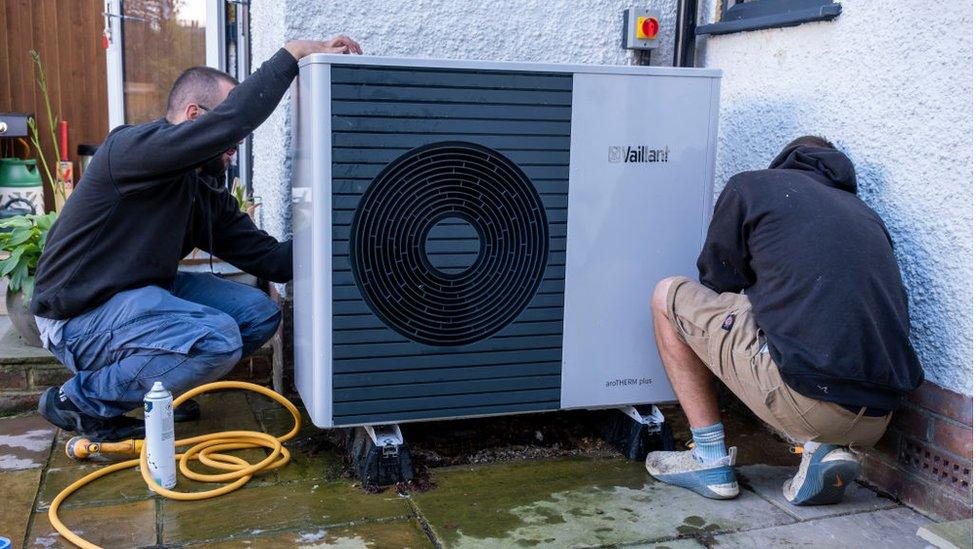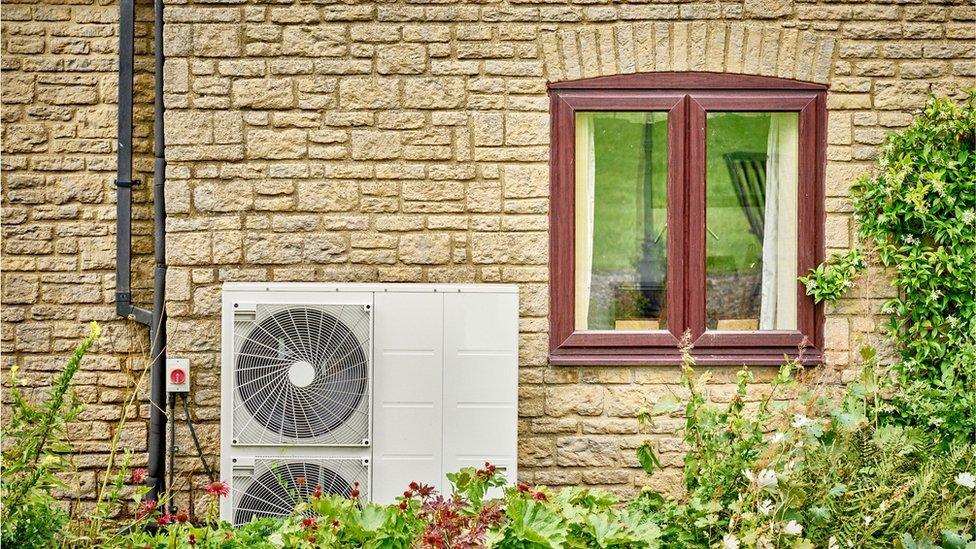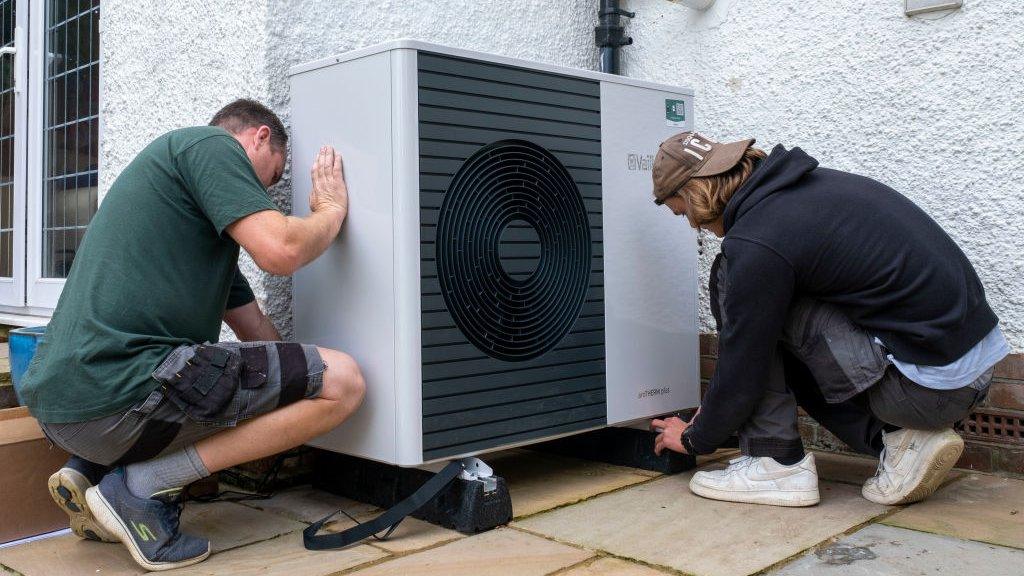Scotland will miss heat pump targets claims WWF
- Published

An air source heat pump can cost about £12,000 to install
Scotland will fall "significantly short" of its target for decarbonising heating in homes, a new report warns.
Environmental campaigners WWF Scotland said a faster rollout of heat pumps could lower energy bills and cut greenhouse gas emissions.
The heating of homes is the fourth-largest cause of emissions.
Zero Carbon Buildings Minister Patrick Harvie said the government's strategy sets a hugely ambitious vision to cut carbon across Scotland's homes.
Scotland has pledged to become net zero by 2045, meaning its contribution to climate change will have ended by then.
As part of that target, the Scottish government is aiming to remove fossil fuels from heating in more than a million homes by 2030.
It has also pledged that all homes will meet band C in energy performance certificate standards by 2032.
Much of the work to achieve the target will involve replacing fossil fuel heating such as gas or oil-fired boilers with heat pumps or other zero emission options.
The WWF report said a faster rollout of heat pumps could also lower energy bills for the majority of Scottish homes.
However, the costs of installing a heat pump can be as much as £12,000.
WWF calls for both the Scottish and UK governments to increase funding and accelerate deadlines for the roll out of alternatives to gas and oil-fired central heating.


To heat our homes, we're hooked on gas which has long been a cheap and easy way to keep us warm.
But each one of those little combi boilers is emitting carbon dioxide which - along with some oil-heated homes - account for about 15% of Scotland's total emissions.
That's more than the amount emitted from power stations and the entire energy supply sector.
Heat pumps are the quickest solution for domestic heating but they are not cheap, starting at about £12,000 per household but reduced to £4,500 with government grants.
Costs are falling but that's still an eye-watering amount for many and they're still expensive to run, requiring huge amounts of currently expensive electricity.
While the power sector is becoming greener and cheaper, the cost to the consumer is not - and changing that is likely to be a game-changer for heat pump roll out.

Fabrice Leveque, energy policy manager at WWF Scotland, said: "Our reliance on gas and oil boilers is driving up our energy bills and creating damaging carbon pollution.
"Scotland is a renewable energy powerhouse, and we can harness that to heat our homes using electric heat pumps."
The report says the removal of UK government policy costs from bills - so called "green levies" - has helped reduce the costs of running heat pumps.
But it says there needs to be further reform of the electricity market where the price is still determined by the most expensive energy source being used, namely gas.
Most households with oil or electric heating would see significant falls in energy bills with a switch to heat pumps, it concludes, though people with gas heating in a modern tenement flat would see costs rise by as much as 23%.

Air source heat pumps sit on the outside of the house
A heat pump is an electrically powered device that absorbs heat from the air, ground or water around a building.
For example, air-source pumps suck in outdoor air and pass it over tubes containing refrigerant fluids to produce heat.
The UK government has set a target of 600,000 heat pump installations per year by 2028.
But currently fewer than 50,000 are fitted in British homes annually and the UK is bottom of the heat pump installation league table in Europe.
Chris Stark, chief executive of the Climate Change Committee - an independent body which advises governments on policy - says decarbonising home heating is a vital step in meeting climate targets.
He said: "The Scottish government has big ambitions for decarbonising the economy but so far there's been too little action to make these a reality.
"Cleaning up home heating will require significant investment and this research shows that this is achievable and desirable."
Scottish government minister Patrick Harvie said he recognised that this was a decisive decade for action on cutting carbon and improving energy efficiency.
He said that since the Heat in Buildings Strategy, external was published he had been working to support and speed up the delivery of zero and low emission heating systems.
"I also look forward to consulting on proposals for a Heat in Buildings Bill in the coming months, and seeking views on our plans for regulation to accelerate green heating installation and higher energy efficiency standards in Scotland's homes and buildings," Mr Harvie said.
- Published24 January 2023

